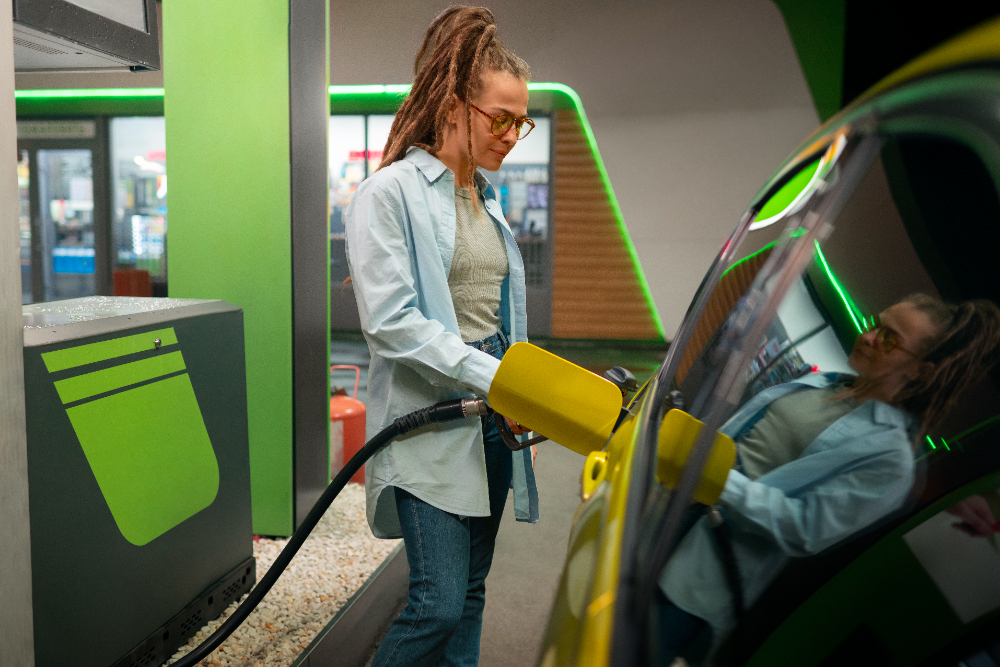With the growing interest in electric vehicles (EVs), one common question comes up again and again—are EVs actually cheaper than traditional fuel-powered cars? It’s a crucial question, especially as gas prices fluctuate and the climate crisis makes us all think more about our carbon footprint. Today, we’ll dive deep into the actual costs of owning an EV versus a fuel-powered vehicle, looking at factors like purchase price, maintenance, and long-term savings. So, let’s uncover if going electric is not only greener but easier on the wallet too!
Purchase Price: Is an EV Worth the Upfront Investment?
At first glance, electric vehicles often come with a higher price tag than gas-powered cars. This is primarily due to the expensive battery technology that powers EVs. However, prices are steadily dropping as advancements in technology and government incentives help reduce the cost. In many regions, buyers of electric vehicles are eligible for tax credits, rebates, and other incentives, which can make EVs more affordable upfront.
Take, for example, the popular Tesla Model 3, which might seem pricey compared to a traditional sedan. But if you apply available incentives, you could end up paying significantly less. And with automakers like Ford, Hyundai, and Nissan now offering budget-friendly EV options, the gap in purchase prices is closing rapidly. So, while EVs may cost more to purchase initially, incentives and falling prices are making them increasingly competitive.
Fuel vs. Electricity Costs: Which is Cheaper in the Long Run?
Once you drive an EV, you’ll notice the fuel savings almost immediately. Charging an electric vehicle at home or at public charging stations typically costs less than filling up a gas tank, even with fluctuating electricity rates. On average, it can cost as little as $5 to $10 to charge an EV fully, depending on your area and electricity provider, while filling up a traditional car with gas could easily cost $40 or more.
For people who drive long distances, these fuel savings add up significantly over time. Even with the cost of public fast-charging, which is generally more expensive than home charging, the annual savings on “fuel” for an EV can be hundreds of dollars lower than for a gas-powered vehicle. Plus, many workplaces and malls now offer free or discounted charging stations, which further drives down the cost.
Maintenance Costs: EVs are Simpler (and Cheaper) to Maintain
One of the less obvious savings of an EV comes from lower maintenance costs. Electric cars have fewer moving parts compared to internal combustion engines, which means fewer things that could break down. Say goodbye to oil changes, transmission repairs, and spark plug replacements. Instead, EVs mainly need battery check-ups and tire rotations, making maintenance simpler and cheaper.
Although battery replacement can be expensive, most EV batteries are built to last for many years and come with extended warranties. According to studies, EV owners often spend about 30% less on maintenance compared to gas-powered vehicle owners. So, even if a battery replacement eventually becomes necessary, the accumulated savings on maintenance often make up for it.
Resale Value: Is Your Investment Safe?
As EVs gain popularity, their resale value is also improving. Some years ago, selling a used EV was challenging due to battery degradation concerns. However, modern EV batteries are lasting much longer than expected, and many automakers are backing them with warranties of eight years or more. Resale values are holding stronger as EV technology gains mainstream acceptance and demand increases for second-hand models.
Total Cost of Ownership: The Real Comparison
When considering the overall cost of ownership, EVs are increasingly proving to be cheaper than fuel-powered cars. From lower fuel costs to reduced maintenance expenses, an EV’s savings potential is clear. If you drive a lot, live in an area with affordable electricity, or have access to tax incentives, EVs may be especially beneficial. Though they may seem more costly upfront, the long-term savings often make up the difference—and then some.
Final Verdict: Is Going Electric Cheaper?
In the end, switching to an EV can be a cost-effective decision, particularly for those looking to save on fuel and maintenance. While the initial price might still be a hurdle for some, incentives and ongoing savings make EVs an attractive choice for budget-conscious drivers. If you’re looking to reduce both your carbon footprint and your expenses, an EV could indeed be the way forward!
With technology advancing rapidly, the question of “Is EV cheaper than fuel?” might soon have a simple answer: Yes! The decision comes down to your personal needs, driving habits, and where you live.





